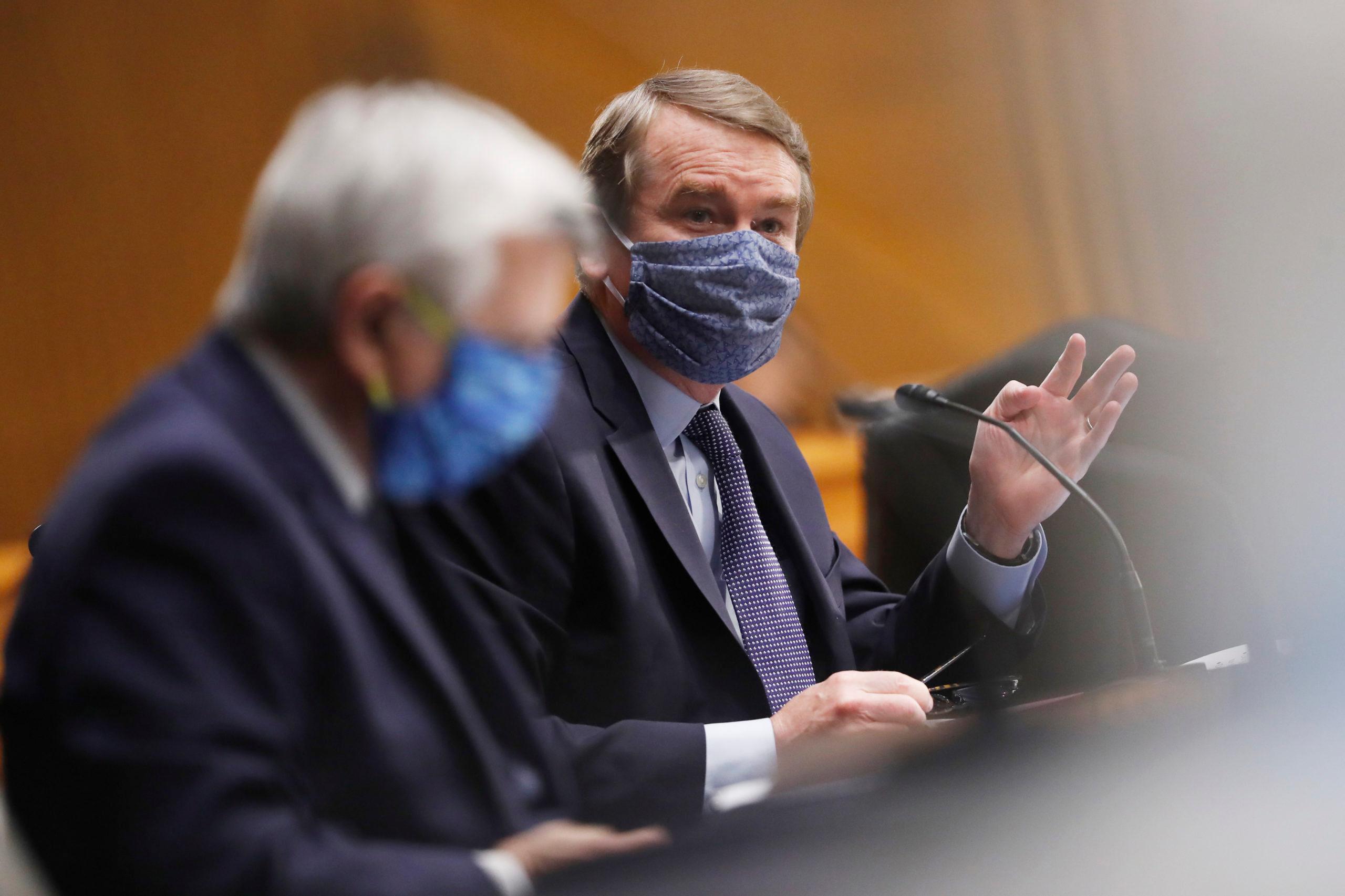
Time is running out for Congress to pass another coronavirus relief package this summer. After this July recess, Congress will have just three weeks to try and reach some kind of agreement.
And that’s the problem. While almost everyone agrees more needs to be done, they don’t agree on what.
But Colorado’s lawmakers have some ideas.
Democratic Sen. Michael Bennet has joined other members of his caucus to push for extending the enhanced unemployment insurance benefit, which expires at the end of July. Bennet said the extra $600 a week on top of local unemployment aid has been a “lifeline” to families across the country, including the 450,000 Coloradans receiving the extra aid.
“If we let these benefits expire, we’re going to let tens of millions of Americans who rely on them into a profound financial crisis,” Bennet said. He noted it’s been used to help with housing, food costs, internet and more. And that type of spending boosts the economy overall.
A growing number of Republicans, however, are disinclined to renew the benefit. They see it as a disincentive to return work. Some lower-wage workers are currently earning more on unemployment than if they had stayed on the job. GOP Rep. Ken Buck introduced legislation in May that would cap unemployment benefits at 100% of a laid off employee's previous wages.
Bennet and other Democrats believe the extra payments should be phased out. They’re pushing for extending the benefit but tying it to the unemployment rate rather than a date on the calendar. As the unemployment rate goes down, so would the benefit.
“Nobody here wants to be in a place where the unemployment benefit is disincentivizing people from working. And that’s why they step it down,” Bennet said. “But it needs to stay in place until this economy heals.”
Many Republicans, such as House Minority Leader Kevin McCarthy of California, point to the June jobs report as proof that the economy is getting back on its feet. But even he’s thinking about what could be in this fifth coronavirus relief package.
McCarthy and Senate Majority Leader Mitch McConnell hope to have a package by the end of July. It would deal with liability protection, send out another economic stimulus check — something President Donald Trump supports — and build on small business programs like the Payment Protection Program.
“Those are the things we’ll look to, those are things we’ll want to have,” McCarthy said. “To continue to build on the successes.”
He was also open to Congress sending additional money for cities and counties to help for the time “when COVID was a challenge.” And he’d support getting rid of the population cap for cities and counties to receive direct aid. “I think the money would go directly where it’s needed, if we allowed cities and counties to apply directly,” he said.
That’s something Democratic Rep. Joe Neguse has called for. He and a bipartisan group of House members, including Rep. Scott Tipton, Rep. Jason Crow and Rep. Ed Perlmutter, want to get rid of the population cap and get additional funds out to localities.
“We have a very small window to act,” said Neguse. “What was the point of wasting those two months and, in the meantime, cities back home in my district and across Colorado are suffering and are experiencing some real economic distress.”
The June jobs report contained bleak news for public sector hiring; governments only added 33,000 jobs, after losing 1.5 million in April and May.
The Democratic House passed a fifth coronavirus relief package, called the HEROES Act, in mid-May but it’s been a non-starter in the Republican-controlled Senate. Still, House Speaker Nancy Pelosi does think a compromise can be reached.
She said almost everything in the HEROES Act had been voted on by Republicans before, “some of it bigger, some of it fresher.”
“They’ve made their overtures. They have also said publicly that this or that should be in the next bill. So we anticipate we will have a bill,” Pelosi said.
But coronavirus relief joins a growing list of must-pass legislation, including the NDAA and all the appropriations bills to fund the federal government, hanging out there on Congress’s to-do list, as lawmakers move ever closer to the frenzy of election season.
Congress does often rely on the pressure of deadlines to get things done. The PPP program was set to expire at the end of June. The Senate passed a bill on June 30 and the House on July 1, to extend the program to August 8. That’s when the long August recess starts, and when most lawmakers expect — or hope — to have another coronavirus relief package to tout to their constituents back home.
As GOP Sen. Cory Gardner said on CPR’s Colorado Matters, “We have to consider it all and we have to act, act very quickly on making sure Coloradans get back on their feet.”








